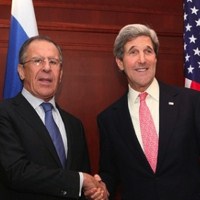
The May 23 Moscow European Security Conference gathered government representatives, defense officials and analysts from Russia, Europe and elsewhere to discuss the range of issues confronting policymakers for European security today. Sponsored by the Russian Ministry of Defense, which covered my expenses as well as those of other nongovernmental participants, the speeches and debates displayed an interesting admixture of standard post-Cold War rhetoric and genuinely innovative thinking. While the conference highlighted the many areas of divergence between Russia and the West on matters of European and global security, it also offered some opportunities for renewed engagement and dialogue on these […]





